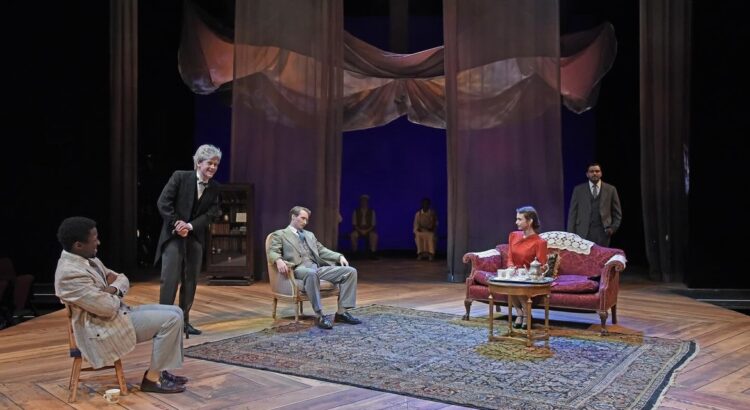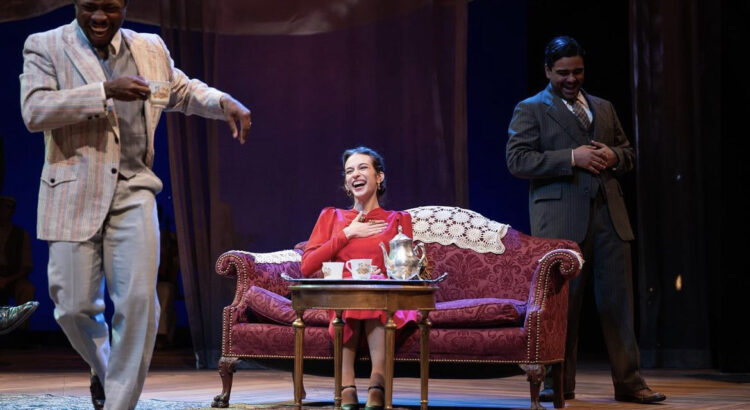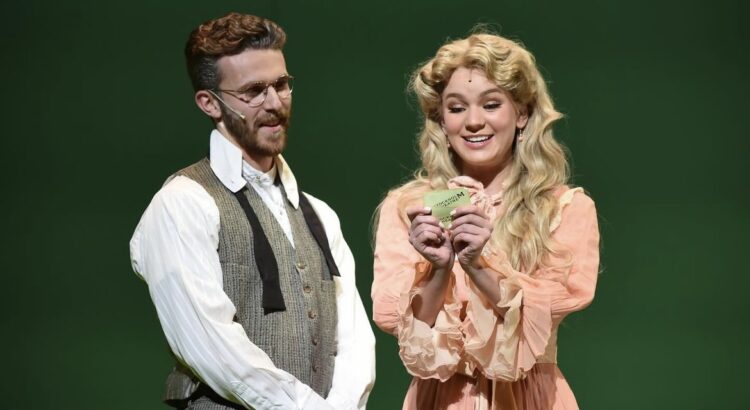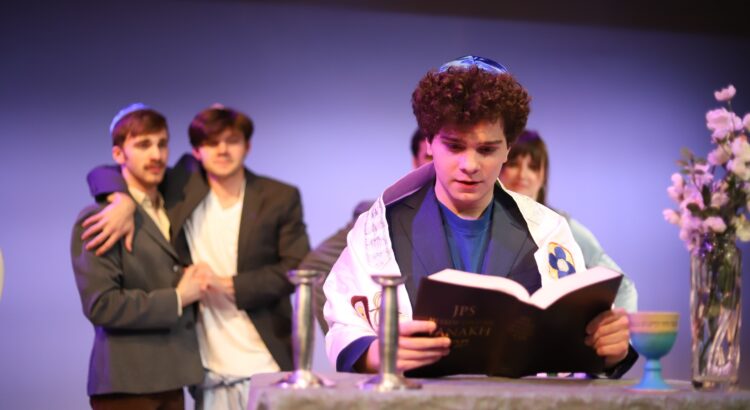Rude Mechanicals completes their 2023-24 season with the 1999 play by Diana Son, Stop Kiss. Seeing this play was a new experience for me, and quite a beautiful one.

The play follows two young women, Callie (Emilia Vizachero) and Sara (Victoria Vourkoutiotis), who meet in New York City and begin to have feelings for one another. One evening, they share a kiss in the West Village, and it results in a terrible hate crime leaving Sara with a life-altering injury. The play follows a non-linear storyline, jumping from Sara and Callie’s first interaction to weeks after the attack.
I am not cultured on much queer theater, so I haven’t been exposed to many pieces where characters are actively discovering their sexual identity during the show—rather many pieces I’ve encountered have characters come in with their sexuality seemingly decided. I enjoyed this piece’s honest and sincere exploration of queerness.
I was immediately struck by Audrey Tieman’s beautiful onstage set when I walked into the Arthur Miller. It brought me directly into the moment of the show with an ornate pink apartment—the 1990s, young, and within a metropolitan city. The major part of the set was far upstage, juxtaposing the thrust space. This left the apartment scenes feeling more presentational than personal, counteracting the intimacy of a thrust. All of the scenes outside the apartment were on the thrust, such as the detective’s office or moments when characters were strolling through the streets of New York City. An interesting choice, that sometimes led me out of the detail of the world that was created in the embellished apartment set.
Emilia Vizachero and Adam Rogers delivered individually exquisite performances. Rogers is effortlessly charming as Callie’s undefined partner, George, and Vizachero brilliantly leads us through a journey of Callie’s many complex emotions over two timelines—one I would be happy to experience again. Vourkoutiotis also played a sweet and gentle Sara, with wholesome chemistry alongside a witty Vizachero.

Direction (by Reese Leif) was cohesive and thorough. Scenes and dramatic moments felt naturally paced, at times skimming on hyper-realism, making the play’s brutal contrast of content duly apparent to the audience.
The illuminating kiss that closes the play leaves a fully realized portrait of Callie and Sara’s relationship. This perfectly placed scene becomes charged over the duration of the play due to the revelations about what lies behind and ahead of these beloved characters. It was an unforgettable (and titular) moment of the piece, yet left my heart aching for the two women.
Leo Kupferberg (a fabulous and frequent SMTD Dramaturg) made a beautiful point in his dramaturgy note about the “in-between” of the piece, which I left the theater pondering. This show revels in the lack of certainty, unwavering bravery, and messiness many women navigate through. Stop Kiss can feel limited to its darkness and crucial messaging of the tumultuous experiences of many LGBTQ+ relationships, but Leif brings out the beauty in such darkness, reminding us that love always prevails.
April 20th, 8pm. Arthur Miller Theater. Images thanks to @umrudes on Instagram.














